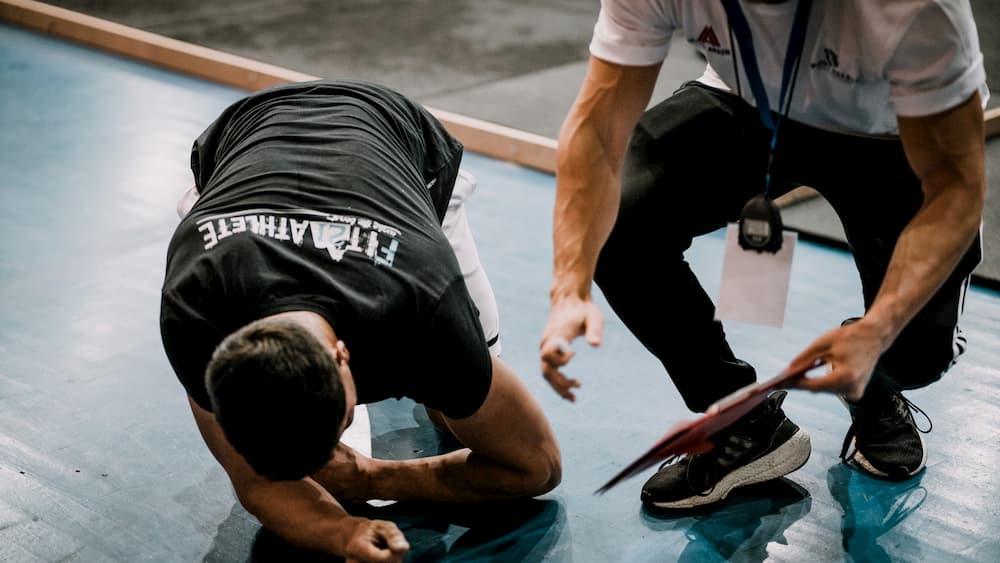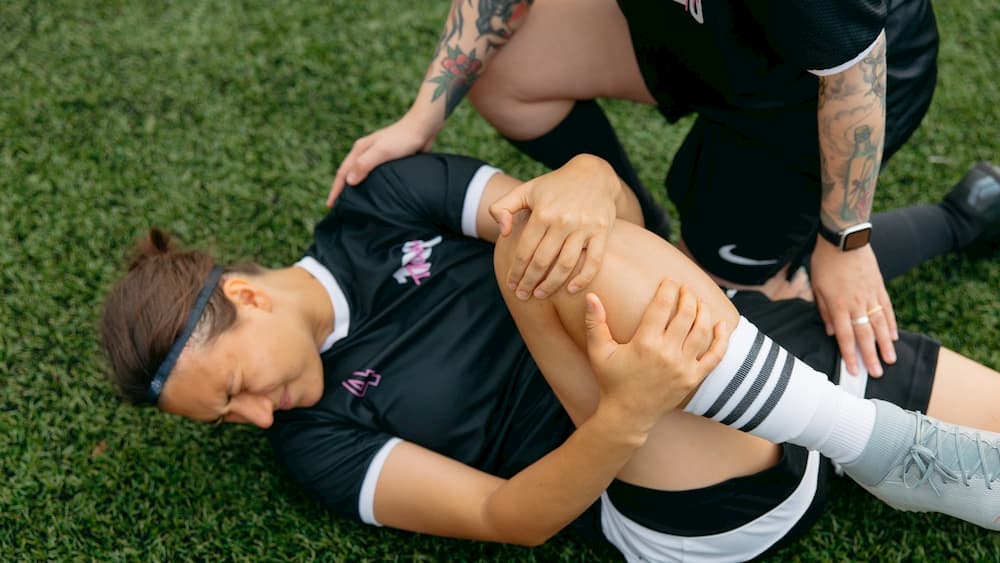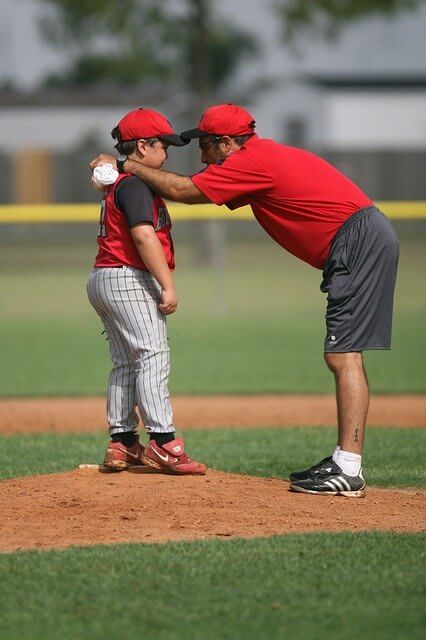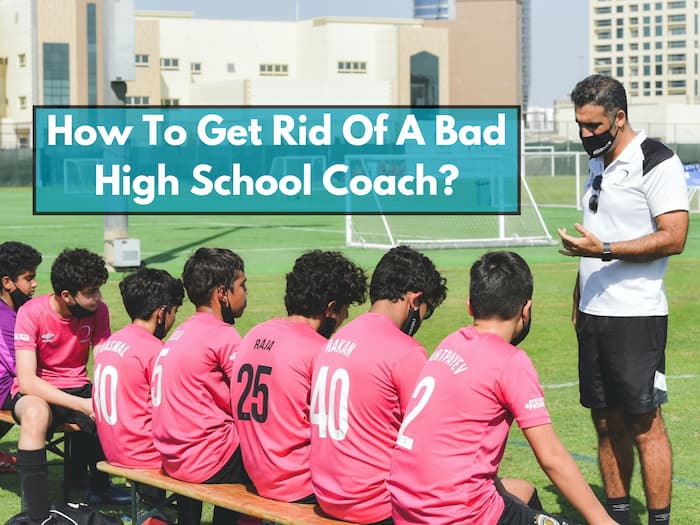A skilled and supportive coach can unleash the full potential of the athletes. But when a high school coach falls short, it can affect all the team members. If you are facing a similar situation, you may want to know how to get rid of a bad high school coach.
First, familiarize yourself with the school rules to get rid of a bad high school coach. Then communicate with your team members, academic advisors, and alumni. Finally, gather evidence and submit a complaint to the school administration.
I have been a baseball player myself and now do coaching. Today, I will share my personal experience dealing with a bad high school coach and getting rid of him.
How Do You Know If Your High School Coach Is Bad?
As a coach, I have to keep some athletes on the sidelines and select the best team combination for playing. An athlete once complained to the authority that I was a bad coach because of that.
But when the authorities investigated, they found out he was doing it because he had not gotten a chance on the team. I explained that I hadn’t picked him because he did not fit the playing combination and I had better players on the team. Then the complaint was dismissed.
I am telling you this because athletes often blame coaches for not selecting them for the team. But that is wrong. Unless the coach is truly a bad one, you will always get a chance when you are ready.
To know whether your high school coach is bad or good, you need to look for certain characteristics such as their communication styles, behaviors, skills, coaching style, and more.
Related: How Much Does A Baseball Coach Make In A Year
Characteristics of a Good and Bad coach
The characteristics of a good and bad coach differ based on individuals and situations. I played under several good and bad coaches in my baseball career. Now I’m dealing with various situations in my coaching career.
It allowed me to see the picture from both perspectives. As a result, I understand better what makes a coach good or bad.

Here I am listing 10 characteristics that separate a bad coach from a good coach:
- Lack of communication: Communication between the coach and players is crucial. If the coach does not properly answer athletes’ queries or does not provide the necessary guidelines, it’s a sign of a bad coach.
- Talks too much about their achievements: I often talk about my coaching career or achievements to inspire my athletes. But doing it too much is not a good sign. It indicates the coach is more concerned about showing off than coaching.
- Always follow the same strategy: The playing strategy should change depending on different situations and opponents. But if a coach follows the same strategy again and again, it means he does not have proper coaching skills.
- Verbally or physically abusive: A bad coach will always try to abuse you either verbally or physically. It is common to make mistakes while practicing or playing. But a coach should never be abusive.
- Favoritism: If the coach consistently favors a particular athlete regardless of how he performs, then it creates a feeling of inequality on the team. It’s not a characteristic of a good coach.
- Shows negative behavior: A coach should try to spread positivity among the team members. But reacting negatively to everything is a sign of a bad coach.
- Lack of professionalism: A bad coach lacks professionalism or sportsmanship. For instance, he will be disrespectful towards his team members as well as to the opponent, will not interact in a proper way with athletes and officials, etc.
- Lack of proper skillset: If a coach himself does not know how to play the game properly, then he will not be able to teach well. The lack of a proper skill set indicates a bad coach.
- Excessive casual and easy-going: It’s good to be friendly with team members and easygoing. But showing excessive casual behavior can hinder the development of athletes.
- Ignore safety guidelines: Athletes’ safety should be the top priority. If the coach pushes you too hard without caring about your safety, it’s a bad sign.
Once you see the majority of these characteristics in your coach, you can confirm that he is a bad one. Now, you can move on to deciding how to deal with him.
Ways to Get Rid of a Bad High School Coach
When someone asks how to deal with a bad coach, I first suggest focusing on improving one’s self-game and ignoring the coach’s bad qualities. This is best when he only shows a few signs of a bad coach.
But if things cross the line and affect the welfare of you and the whole team, then you should look for ways to get rid of him.
Initially, you can try to confront them in a positive way, but it rarely works. It makes them angrier. Hence, you may take a different path.
I recommend following the steps below to get rid of a bad high school coach:
#1 Review school policies
First, review the policies and procedures of your high school and athletic department regarding handling complaints and grievances against coaches. It will give you an idea of where to report your concerns and what channel to follow.
From start to end, always try to follow the official procedure. It is never a good idea to do things out of the book to handle such situations.
#2 Communicate with teammates
Talk to your fellow team members If you are preparing to file a complaint against your coach. If they think the same as you and decide to be with you, it will make the complaint stronger.
The school authority may ignore complaints from a single student, but not from a group of students.
#3 Seek supports
Also, try to seek support from your school’s advisors and alumni. They can better guide you on how to do things properly. Besides, they can help you through the whole process.
You can also seek advice from your parents and seniors, who might have faced similar situations.
#4 Gather evidence
Before you submit a complaint against a bad coach, you must gather evidence. Remember, if you can not prove he is a bad coach, your complaint will be dismissed, which can make things worse.
Once you have enough concrete evidence, you can move on to submitting the complaint to the high school authority.
#5 Schedule a meeting with the authority
Finally, contact the trusted authority, such as the athletic director or principal, and schedule a meeting. Tell them about your concerns and show them the evidence you gathered.
The authority will conduct an investigation to test the authenticity of the evidence and will take the necessary actions.
Gathering Evidence and Documenting Your Concerns
With proper evidence and documentation, your complaint against the bad coach will be valid. Hence, it is crucial that you do it the right way.
Here are some of my suggestions regarding collecting evidence and documenting concerns against a bad high school coach:
- Document specific incidents: Write documents for each incident that made you think the coach was bad. Whether it’s about his behavior, inability to coach well, or favoring someone unworthy.
- Manage witness testimonials: Documents alone will not be enough. Convince some eyewitnesses to give testimonials. It can be team members or other officials.
- Keep communication records: If there are any communication records, such as email or text, where the coach behaved inappropriately, keep them.
- Collect videos or audio: If the laws in your area and school allow recording, then try to record while the coach is doing something bad. Although it is the strongest evidence, ensure you are following the rules.
Once you have all the evidence ready, arrange it together. Then present them in the meeting with the school administration. If your evidence is strong enough, you can advocate for change.
Bad coaching examples: how bad coaches affect athletes
Bad coaching not only affects individual athletes but also affects the overall team. It creates a negative environment in the team, causes a lack of motivation and confidence, reduces opportunities, and so on.
Laura M. Miele, Ph.D., an adjunct professor at Ohio University’s Coaching Education program, writes on Psychology Today that bad coaching can break down a player mentally and physically.

For instance, if a player fails to pass the ball once, it’s not a big deal. The coach should inspire him to make it next time. But if he starts to verbally abuse and make negative comments consistently, it will break the payer mentally.
Then again, if the coach forces the athlete to practice without safety and pushes too much, it can injure the player. The athlete may never be able to play again.
FAQs:
Q1: What if the school administration does not address concerns about a bad coach the issue?
If the school administration does not address the bad coach issue, then you should contact higher-level authorities. District-level administration, school or education boards, and sports associations are some of the authorities who can help you.
Q2: How can I ensure a suitable replacement for a high school coach?
The authorities will find a suitable replacement in case they change the coach based on your complaint. However, you can request the authority to review the coach’s background properly before the appointment.
Q3: How can I address concerns about a bad high school coach’s behavior?
If you are concerned about your coach’s behavior, try to consult with your academic advisor or let the authority know about it. If the issue is serious, the administration may replace the coach.
Q4: How to Prepare a meeting with School Administration?
To prepare for the meeting, organize the evidence, decide what to say, and determine the goal. Also, gather your team and set team norms with individual roles.
My Personal Opinion on terminating a high school coach
As a coach, I often have to make tough decisions that are not favorable for everyone. But I always try to give everybody a chance later, if not now.
What I am trying to say is that you should not complain against a coach based on a single bad incident. If problems persist for a long time, then follow the proper rules and policies. Try to stay by the book, and it will help you get rid of the bad high school coach.
Read More:
11 Most Important Baseball Positions That You Should Know
How To Read A Baseball Scoreboard?
What Is The Dropped Third Strike Rule
What Is The Baseball Mercy Rule?

Hello everyone. My name is Jason Butler, and I live in California, America. I was a professional AAA Minor League Baseball player. I lost my chance of playing MLB for injury issues, but I did not lose my love for baseball. I attended the coaching training program and am now working as a coach in a small school in San Diego.
I always love to share my experience and knowledge if that can help you. Play baseball, and stay fit.
